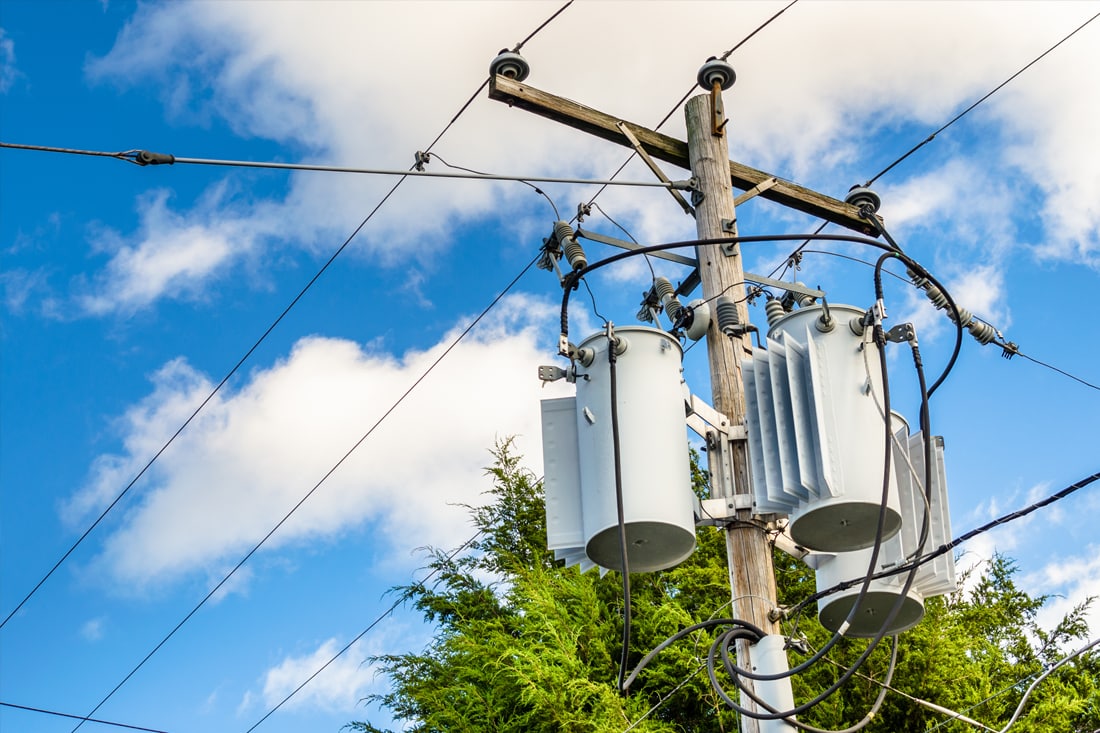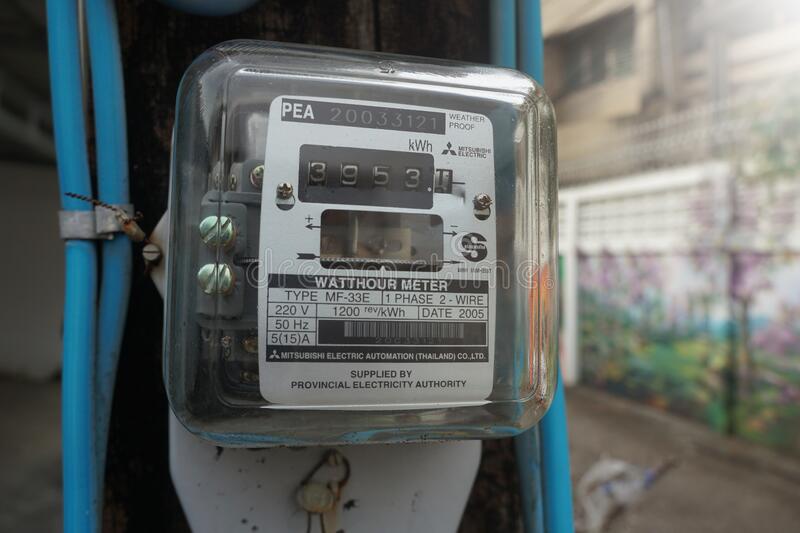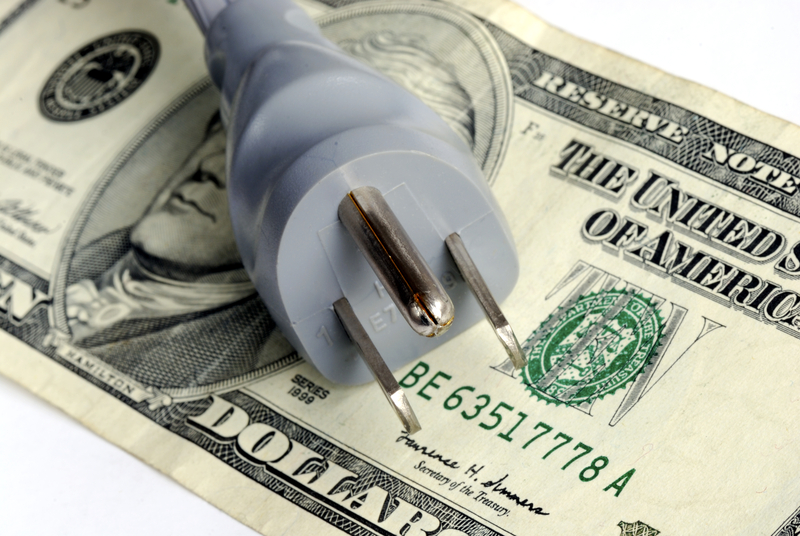This article is your complete guide to the average home electricity usage. In today’s interconnected world, our homes buzz with various appliances and systems. All of which consume energy at varying degrees. From the silent operation of refrigerators to our evening binge-watching sessions, electricity powers our modern lifestyles. With energy bills arriving monthly, many homeowners ponder about their average home electricity usage and how it measures up against the national average. Let’s dive deep into these numbers, understand the metrics, and identify how we can make impactful changes.
In this guide, we’ll unveil the mysteries behind the average home electricity usage, providing homeowners with the knowledge they need to make informed decisions.
Here at The Energy Professor, we want to give you the information you need to not only save money on your energy bill but to also become more energy efficient. We hope find this post helpful and makes it easier for you to know more about residential electricity. Be sure to also check out our one-of-a-kind energy savings calculator!
The Energy Professor Electricity Rate Check Tool
How Much Power Does a House Use?

Every home’s electricity usage tells a unique story, influenced by numerous elements. The number of residents is a primary factor; a bustling family home might naturally use more energy compared to a single-family home. Daily routines also matter. Homes where residents work or study from home might see a spike in daytime energy use. Additionally, the age, type, and efficiency of appliances play a substantial role. Think of the energy draw of older refrigerators versus modern energy-efficient models. But how many kWh per day is normal? Despite these variables, statistics show that, on average, a US household consumes about 877 kWh monthly. This average translates to around 29 kWh daily, giving homeowners a ballpark figure for what might be considered “normal” in daily electricity consumption.
The Best way to Lower the Average kWh per Month
One major way to cut down on electricity use is by installing energy-efficient windows. These windows reduce heat loss in the winter and block excess heat in the summer, regulating indoor temperatures. Therefore, your heating and cooling systems won’t have to work as hard, leading to reduced electricity consumption. By incorporating such measures, you’re also playing a role in reducing residential electricity consumption on a broader scale.
Related Post: What are Energy-Efficient Windows?
How is Power Measured in a Home?

Power, when we talk about home electricity, is quantified in kilowatts (kW), with one kilowatt being equivalent to 1,000 watts. To paint a clearer picture, think of each electrical appliance or device in your home having a power rating, often given in watts. So when the question arises, “How many watts does a house use?“, it’s a dive into the combined power needs of every electrical item within the home when they’re all humming away simultaneously. However, for our everyday understanding and particularly when it comes to billing, kilowatt-hours (kWh) steal the limelight. This unit doesn’t just touch upon potential power; it measures the real energy a household consumes over a specific duration, be it an hour, a day, or a month.
How Many Kilowatts Does a House Use?
- The average home, when considering all appliances, devices, and systems running, might use up to 30 kW at its peak load. But remember, not everything is on at the same time, which is why our average kWh per month comes out to about 877.
Understanding the kilowatts a house uses is pivotal for homeowners. It’s not just about figures on a bill; it’s about grasping our home’s energy footprint. By gaining insight into our household’s average consumption, we can make informed choices about energy efficiency, sustainability, and cost savings.
Related Post: What is the Difference Between Kilowatts & Kilowatt-Hours?
What Factors Influence a Home’s Electricity Usage?

The size and insulation of the home play a pivotal role. Larger homes often require more energy for heating and cooling, especially if they are not well-insulated. Appliances and their efficiencies make a significant difference. Energy-efficient appliances consume far less power than their older counterparts. The number of occupants and their daily habits—such as the duration of showers, television watching, or computer usage—also play a part. Geographical location matters, too; homes in colder climates might use more energy for heating, while those in warmer areas could have higher residential electricity costs. Lastly, the type of energy source, such as electric, gas, or solar, can impact consumption rates. By understanding these factors, homeowners can pinpoint where changes might be made to reduce their energy consumption.
Average Household Electricity Consumption
- The average household electricity consumption kWh per day is approximately 29 kWh, as mentioned earlier. However, in homes with more residents or numerous high-power-consuming devices, this number can increase substantially.
The average household electricity consumption offers a lens into our daily lives, habits, and the evolving nature of modern living. While the numbers can provide a benchmark, it’s essential for homeowners to recognize their unique consumption patterns and the factors influencing them. By staying informed and proactive, we can align our energy use with both our environmental responsibilities and our budgetary constraints, ensuring a sustainable, energy-efficient future for our homes.
Related Post: Do Appliances use Electricity when Plugged in but Turned off?
How Can I Reduce My Home’s Electricity Consumption?

Reducing your home’s electricity consumption is not just beneficial for your wallet, but it’s also a step forward in reducing your carbon footprint. The first step is awareness—knowing which appliances or habits consume the most power. Investing in energy-efficient appliances can make a significant dent in your monthly bills, while also being eco-friendlier. Regular maintenance, like cleaning air conditioner filters or ensuring proper insulation, helps systems run optimally. Additionally, adopting habits such as turning off lights when not in use, unplugging devices, and using natural light can contribute to reducing the average home electricity usage. Lastly, consider renewable energy sources like solar panels. They might have an upfront cost but can offer long-term reductions in energy consumption and expenses.
Average Power Consumption of a House and Ways to Reduce It
- Understanding the average power consumption of a house is the first step toward making informed decisions. Turn off appliances when they’re not in use. Switch to energy-efficient light bulbs. Consider solar panels, or simply be mindful of your usage. Every little bit helps.
Remember, the average home electricity usage might be around 877 kWh per month, but with conscious efforts, you can reduce this number. You won’t just be saving on your bills, but also doing your bit for the planet.
Related Post: What is the Average Monthly Electric Bill with Solar Panels?
Average Home Electricity Usage FAQ

Q: What does “average kWh per month” mean for a US household?
A: The term refers to the typical electricity consumption for homes in a month. On average, a US household uses about 877 kWh.
Q: How many kWh per day is normal for a typical home?
A: For a standard US household, about 29 kWh daily is the average electricity usage per day.
Q: When people ask “How many watts does a house use,” what do they mean?
A: They’re often referring to the combined power requirements of all electrical items within the home when they’re all in use simultaneously.
Q: What’s the difference between kilowatts and kilowatt-hours?
A: Kilowatts (kW) measure power capacity, whereas kilowatt-hours (kWh) measure actual energy consumed over time.
Q: How can I determine the “average kilowatt usage per day” for my home?
A: By checking your utility bill’s detailed breakdown, or using energy monitors, you can gauge your daily kWh consumption.
Q: What’s the “average household electricity consumption kWh per day” in colder regions?
A: Homes in colder areas might have a higher daily kWh due to increased heating needs, especially if they lack energy-efficient windows and insulation.
Q: How much energy does a house use when factoring in heating?
A: The kWh to heat a house per day varies based on insulation, home size, and heating system efficiency. However, heating can significantly increase a home’s daily kWh consumption.
Do you Need Cheaper Electricity?
If you’ve taken the time to understand the information on your bill and discovered you’re paying more than you’d like for your electricity, have you looked around for a cheaper deal? The Energy Professor has a wealth of information on ways to save on your utilities, including details of top deals that could significantly reduce your monthly or quarterly electricity bills.
We hope you found this article helpful! If you are looking for ways to increase energy efficiency and sustainability in your home be sure to take a look at all of the latest renewable energy options in your area. The Energy Professor helps residential and small business owners find qualified energy suppliers in New York, New Jersey, Pennsylvania, Texas, Ohio, Maryland, Illinois, and Massachusetts.


